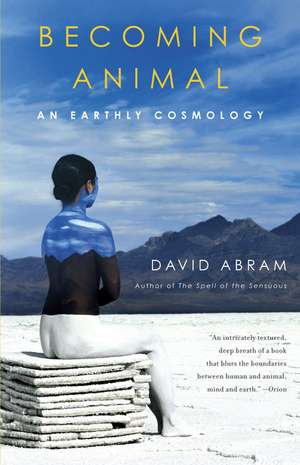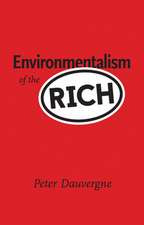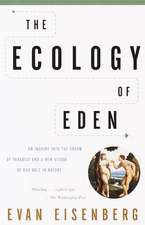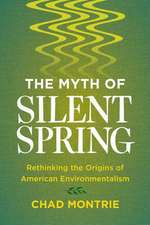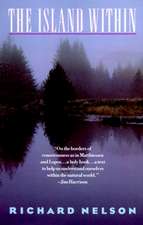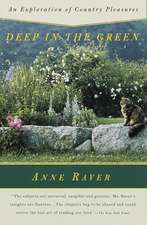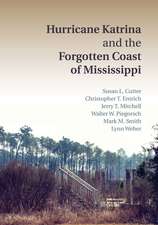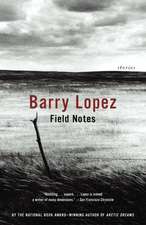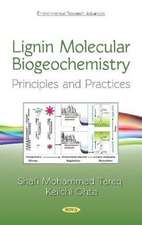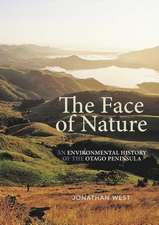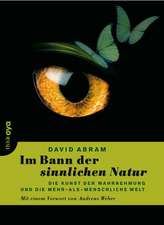Becoming Animal: An Earthly Cosmology
Autor David Abramen Limba Engleză Paperback – 31 aug 2011
David Abram’s first book, The Spell of the Sensuous, hailed as “revolutionary” by the Los Angeles Times, as “daring” and “truly original” by Science, has become a classic of environmental literature. Now he returns with a startling exploration of our human entanglement with the rest of nature.
As the climate veers toward catastrophe, the innumerable losses cascading through the biosphere make vividly evident the need for a metamorphosis in our relation to the living land. For too long we’ve ignored the wild intelligence of our bodies, taking our primary truths from technologies that hold the living world at a distance. Abram’s writing subverts this distance, drawing readers ever closer to their animal senses in order to explore, from within, the elemental kinship between the human body and the breathing Earth. The shape-shifting of ravens, the erotic nature of gravity, the eloquence of thunder, the pleasures of being edible: all have their place in this book.
Preț: 102.08 lei
Nou
Puncte Express: 153
Preț estimativ în valută:
19.53€ • 20.39$ • 16.17£
19.53€ • 20.39$ • 16.17£
Carte disponibilă
Livrare economică 14-28 martie
Preluare comenzi: 021 569.72.76
Specificații
ISBN-13: 9780375713699
ISBN-10: 0375713697
Pagini: 336
Dimensiuni: 135 x 203 x 18 mm
Greutate: 0.26 kg
Editura: Vintage Publishing
ISBN-10: 0375713697
Pagini: 336
Dimensiuni: 135 x 203 x 18 mm
Greutate: 0.26 kg
Editura: Vintage Publishing
Recenzii
“A wild book in every sense of the word, full of stories that will leave you trembling, but even fuller of ideas that will send you out into the world with new eyes.” —Bill McKibben, author of Eaarth
“This book is like a prehistoric cave. If you have the nerve to enter it and you get used to the dark, you’ll discover things about storytelling which are startling, urgent and deeply true. Things each of us once knew, but forgot when we were born into the 19th and 20th centuries. Extraordinary rediscoveries!” —John Berger, author of Ways of Seeing and Why Look at Animals
“I cannot imagine another book that so gently and so persuasively alters how we look at ourselves.” —Richard Louv, author of The Nature Principle
“One of the most compelling and important ecology books in decades.” —Rex Weyler, co-founder of Greenpeace International
“A truly alchemical book. . . . Those of us who still hope for a revolutionary change in our thinking toward animals, the living land and the climate will welcome this book. Abram is an audacious thinker, a true visionary, and, really, just a damn good nature writer.” —San Francisco Book Review
“An intricately textured, deep breath of a book that blurs the boundaries between human and animal, mind and earth. Prose as lush as a moss-draped rain forest and as luminous as a high desert night. . . Deeply resonant with indigenous ways of knowing, Abram lets us listen in on wordless conversations with ancient boulders, walruses,
birds, and roof beams. His profound recognition of intelligences other than our own enables us to enter into reciprocal symbioses that can, in turn, sustain the world. Becoming Animal illuminates a way forward in restoring relationship with the earth, led by our vibrant animal bodies to re-inhabit the glittering world." —Orion
“A stunning, compelling journey into embodied, earthly intelligence, Becoming Animal is philosophy at its engaging best. Prepare for a wild, profound ride into the essence of the human animal—an essence embedded in communion with the Earth. A must read for anyone concerned about the future of the planet and ourselves.” —Kierán Suckling, co-founder and Executive Director, Center for Biological Diversity
“In Becoming Animal, David Abram has crafted the rarest of literary gems: a sublime effort combining transcendent prose, lucid insight, and lasting consequence.” —Shambhala Sun
“If we are to survive—indeed, if we are to stop the dominant culture from killing the planet—it will be in great measure because of brave and brilliant beings like David Abram. This is a beautifully written, deeply moving, and important book.” —Derrick Jensen, author of A Language Older Than Words and Endgame
Becoming Animal brings us home to ourselves as living organs of this wild planet. Its teachings leap off the page and translate immediately into lived experience. —Joanna Macy, Buddhist scholar and activist
“Without doubt one of America’s greatest nature writers, one who ably follows in the footsteps of Muir, Thoreau and Leopold. . . .[A] book of such transformative potential that it needs to be read twice in quick succession to get the full benefit. . . . The language is luminous, the style hypnotic. Abram weaves a spell that brings the world alive.”
—Resurgence
“Pure enthusiasm drives Abram to explore the yearning of our body for the larger body of Earth. . . . [Abram] brings the magician’s sense of mystery and playful surprise. . . His celebratory embrace of all that surrounds him is refreshing in the extreme.”
—Kirkus Reviews
“As with many deeply original—and radical—books, this work may startle, even provoke the reader in its electric reversal of conventional thought. . . . [T]his is a portrait of the artist as a young raven, arguing, with all the subtlety of his mind, for the mindedness of the body. An exercise of uncanny imagination.” —Jay Griffiths, author of Wild
“This brave and magical book summons wild wonder to remind us who we are.”
—Amory B. Lovins, Chief Scientist, Rocky Mountain Institute
“Speculative, learned, and always ‘lucid and precise’ as the eye of the vulture that confronted him once on a cliff ledge, Abram has one of those rare minds which, like the mind of a musician or a great mathematician, fuses dreaminess with smarts.” —The Village Voice
“Refreshing. [Abram] allows himself to be expansive, sentimental, and more than a little mad. . . . His book is transformative, animated by piercing observations and hallucinatory intensity.” —Bookforum
“This startling, sparkling book challenges the technological temper of our times by returning us to the animal body in ourselves. Abram shows brilliantly how this body brings us back to Earth in a series of acutely moving descriptions of its polysensory genius. An original work of primary philosophy, it is written with verve, passion, and poetry.” —Edward S. Casey, author of The Fate of Place: A Philosophical History
Extras
Introduction
Between the Body and the Breathing Earth
Owning up to being an animal, a creature of earth. Tuning our animal senses to the sensible terrain: blending our skin with the rain-rippled surface of rivers, mingling our ears with the thunder and the thrumming of frogs, and our eyes with the molten gray sky. Feeling the polyrhythmic pulse of this place—this huge windswept body of water and stone. This vexed being in whose flesh we’re entangled.
Becoming earth. Becoming animal. Becoming, in this manner, fully human.
*
This is a book about becoming a two-legged animal, entirely a part of the animate world whose life swells within and unfolds all around us. It seeks a new way of speaking, one that enacts our interbeing with the earth rather than blinding us to it. A language that stirs a new humility in relation to other earthborn beings, whether spiders or obsidian outcrops or spruce limbs bent low by the clumped snow. A style of speech that opens our senses to the sensuous in all its multiform strangeness.
The chapters that follow strive to discern and perhaps to practice a curious kind of thought, a way of careful reflection that no longer tears us out of the world of direct experience in order to represent it, but that binds us ever more deeply into the thick of that world. A way of thinking enacted as much by the body as by the mind, informed by the humid air and the soil and the quality of our breathing, by the intensity of our contact with the other bodies that surround.
Yet words are human artifacts, are they not? Surely to speak, or to think in words, is necessarily to step back from the world’s presence into a purely human sphere of reflection? Such, precisely, has been our civilized assumption. But what if meaningful speech is not an exclusively human possession? What if the very language we now speak arose first in response to an animate, expressive world—as a stuttering reply not just to others of our species but to an enigmatic cosmos that already spoke to us in a myriad of tongues?
What if thought is not born within the human skull, but is a creativity proper to the body as a whole, arising spontaneously from the slippage between an organism and the folding terrain that it wanders? What if the curious curve of thought is engendered by the difficult eros and tension between our flesh and the flesh of the earth?
*
Is it possible to grow a worthy cosmology by attending closely to our encounters with other creatures, and with the elemental textures and contours of our locale? We are by now so accustomed to the cult of expertise that the very notion of honoring and paying heed to our directly felt experience of things—of insects and wooden floors, of broken-down cars and bird-pecked apples and the scents rising from the soil—seems odd and somewhat misguided as a way to find out what’s worth knowing. According to assumptions long held by the civilization in which I’ve been raised, the deepest truth of things is concealed behind the appearances, in dimensions inaccessible to our senses. A thousand years ago these dimensions were viewed in spiritual terms: the sensuous world was a fallen, derivative reality that could be understood only by reference to heavenly realms hidden beyond the stars. Since the powers residing in such realms were concealed from common perception, they had to be mediated for the general populace by priests, who might intercede with those celestial agencies on our behalf.
In recent centuries, an abundance of discoveries and remarkable inventions have transformed this culture’s general conception of things—and yet the basic disparagement of sensuous reality remains. Like an old, collective habit very difficult to kick, the directly sensed world is still explained by reference to realms hidden beyond our immediate experience. Such a realm, for example, is the microscopic domain of axons and dendrites, and neurotransmitters washing across neuronal synapses—a dimension entirely concealed from direct apprehension, yet which presumably precipitates, or gives rise to, every aspect of our experience. Another such dimension is the recondite realm hidden within the nuclei of our cells, wherein reside the intricately folding strands of DNA and RNA that ostensibly code and perhaps even “cause” the behavior of living things. Alternatively, the deepest source and truth of the apparent world is sometimes held to exist in the subatomic realm of quarks, mesons, and gluons (or the still more theoretical world of vibrating ten-dimensional strings); or perhaps in the initial breaking of symmetries in the cosmological “big bang,” an event almost inconceivably distant in time and space.
Every one of these arcane dimensions radically transcends the reach of our unaided senses. Since we have no ordinary experience of these realms, the essential truths to be found there must be mediated for us by experts, by those who have access to the high-powered instruments and the inordinately expensive technologies (the electron microscopes, functional MRI scanners, radio telescopes, and supercolliders) that might offer a momentary glimpse into these dimensions. Here, as before, the sensuous world—the creaturely world directly encountered by our animal senses—is commonly assumed to be a secondary, derivative reality understood only by reference to more primary domains that exist elsewhere, behind the scenes.
I do not deny the importance of those other scales or dimensions, nor the value of the various truths that may be found there. I deny only that this shadowed, earthly world of deer tracks and moss is somehow less worthy, less REAL, than those abstract dimensions. It is more palpable to my skin, more substantial to my flaring nostrils, more precious—infinitely more precious—to the heart drumming within my chest.
This directly experienced terrain, rippling with cricket rhythms and scoured by the tides, is the very realm now most ravaged by the spreading consequences of our disregard. Many long-standing and lousy habits have enabled our callous treatment of surrounding nature, empowering us to clear-cut, dam up, mine, develop, poison, or simply destroy so much of what quietly sustains us. Yet few are as deep-rooted and damaging as the habitual tendency to view the sensuous earth as a subordinate space—whether as a sinful plane, riddled with temptation, needing to be transcended and left behind; or a menacing region needing to be beaten and bent to our will; or simply a vaguely disturbing dimension to be avoided, superseded, and explained away.
Corporeal life is indeed difficult. To identify with the sheer physicality of one’s flesh may well seem lunatic. The body is an imperfect and breakable entity vulnerable to a thousand and one insults—to scars and the scorn of others, to disease, decay, and death. And the material world that our body inhabits is hardly a gentle place. The shuddering beauty of this biosphere is bristling with thorns: generosity and abundance often seem scant ingredients compared with the prevalence of predation, sudden pain, and racking loss. Carnally embedded in the depths of this cacophonous profusion of forms, we commonly can’t even predict just what’s lurking behind the near boulder, let alone get enough distance to fathom and figure out all the workings of this world. We simply can’t get it under our control. We’ve lost hearing in one ear; the other rings like a fallen spoon. Our spouse falls in love with someone else, while our young child comes down with a bone-rattling fever that no doctor seems able to diagnose. There are things out and about that can eat us, and ultimately will. Small wonder, then, that we prefer to abstract ourselves whenever we can, imagining ourselves into theoretical spaces less fraught with insecurity, conjuring dimensions more amenable to calculation and control. We slip blissfully into machine-mediated scapes, offering ourselves up to any technology that promises to enhance the humdrum capacities of our given flesh. And sure, now and then we’ll engage this earthen world as well, as long we know that it’s not ultimate, as long as we’re convinced that we’re not stuck here.
Even among ecologists and environmental activists, there’s a tacit sense that we’d better not let our awareness come too close to our creaturely sensations, that we’d best keep our arguments girded with statistics and our thoughts buttressed with abstractions, lest we succumb to an overwhelming grief—a heartache born of our organism’s instinctive empathy with the living land and its cascading losses. Lest we be bowled over and broken by our dismay at the relentless devastation of the biosphere.
Thus do we shelter ourselves from the harrowing vulnerability of bodied existence. But by the same gesture we also insulate ourselves from the deepest wellsprings of joy. We cut our lives off from the necessary nourishment of contact and interchange with other shapes of life, from antlered and loop-tailed and amber-eyed beings whose resplendent weirdness loosens our imaginations, from the droning of bees and the gurgling night chorus of the frogs and the morning mist rising like a crowd of ghosts off the weedlot. We seal ourselves off from the erotic warmth of a cello’s voice, or from the tilting dance of construction cranes against a downtown sky overbursting with blue. From the errant hummingbird pulsing in our cupped hands as we ferry it back out the door, and the crimson flash as it zooms from our fingers.
For too long we’ve closed ourselves to the participatory life of our senses, inured ourselves to the felt intelligence of our muscled flesh and its manifold solidarities. We’ve taken our primary truths from technologies that hold the world at a distance. Such tools can be mighty useful, and beneficial as well, as long as the insights that they yield are carried carefully back to the lived world, and placed in service to the more-than-human matrix of corporeal encounter and experience. But technology can also, and easily, be used as a way to avoid direct encounter, as a shield—etched with lines of code or cryptic jargon—to ward off whatever frightens, as a synthetic heaven or haven in which to hide out from the distressing ambiguity of the real.
Only by welcoming uncertainty from the get-go can we acclimate ourselves to the shattering wonder that enfolds us. This animal body, for all its susceptibility and vertigo, remains the primary instrument of all our knowing, as the capricious earth remains our primary cosmos.
*
I have no intention with this work to offer a definitive statement, much less a comprehensive one. The complicated and often terrifying problems arising at this moment of the earth’s unfolding entail the widest possible range of responses, to which every one of us must lend our specific gifts. I’ve written this book, a spiraling series of experimental and improvisational forays, in hopes that others will try my findings against their own experience, correcting or contesting my discoveries with their own.
This venture will start slowly, gathering energy as it moves. Simple encounters from my own life—encounters unexpected and serendipitous—will provide a loose, structuring frame for each investigation that follows. The early chapters take up several ordinary, taken-for-granted aspects of the perceived world—shadows, houses, gravity, stones, visual depth—drawing near to each phenomenon in order to notice the way it engages not our intellect but our sensing and sentient body. Later chapters delve into more complex powers—like mind, mood, and language—that variously influence and organize our experience of the perceptual field. The final chapters step directly into the natural magic of perception itself, exploring the willed alteration of our senses and the wild transformation of the sensuous, addressing magic and shapeshifting and the metamorphosis of culture.
Many of our inherited concepts (our ready definitions and explanations) serve to isolate our intelligence from the intimacy of our creaturely encounter with the strangeness of things. In these pages we’ll listen close to the things themselves, allowing weather patterns and moose and precipitous cliffs their own otherness. We’ll pay attention to their unique manner of showing themselves, at tuning ourselves to those facets that have been eclipsed by accepted styles of thinking. Can we find fresh ways to elucidate these earthly phenomena, forms of articulation that free the things from their conceptual straitjackets, enabling them to stretch their limbs and begin to breathe?
The early explorations in this book will soon lead us up against some basic cultural assumptions, forcing us to ruminate a range of reflective questions regarding bodies, materiality, and the language of the sciences, as well as the manner in which our words affect the ongoing life of our animal senses. Such discussions will leave us freer to dance in the later chapters, able to follow our investigations wherever they lead.
*
Some might claim that this is a book of solitudes. For I’ve chosen to concentrate upon those moments in a day or a life when one slips provisionally beneath the societal surge of forces, those occasions (often unverbalized and hence overlooked) when one comes more directly into felt relation with the wider, more-than-human community of beings that surrounds and sustains the human hubbub. Awakening to citizenship in this broader commonwealth, however, has real ramifications for how we humans get along with one another. It carries substantial consequences for the way a genuine democracy shapes itself—for the way that our body politic breathes.
Why, then, is so little attention paid to the social or political spheres within these pages? Because there’s a necessary work of recuperation to be accomplished (or at least opened and gotten well under way) before those spheres can be disclosed afresh, and this book is engaged in that work of recuperation. A replenished participation in the human collective, forging new forms of place-based community and planetary solidarity, along with a commitment to justice and the often exasperating work of politics—these, too, are necessary elements in the process, and they compose a vital part of my own practice. But they are not the primary focus of this volume.
*
Writing is a curious endeavor, swerving from moments of splendid delirium into others of stunned puzzlement, and from there into stretches of calm, focused craft. The writing down of words is a relatively recent practice for the human animal. We two-leggeds have long been creatures of language, of course, but verbal language lived first in the shaped breath of utterance, it laughed and stuttered on the tongue long before it lay down on the page, and longer still before it arrayed itself in rows across the glowing screen.
While persons brought up within literate culture often speak about the natural world, indigenous, oral peoples sometimes speak directly to that world, acknowledging certain animals, plants, and even landforms as expressive subjects with whom they might find themselves in conversation. Obviously these other beings do not speak with a human tongue; they do not speak in words. They may speak in song, like many birds, or in rhythm, like the crickets and the ocean waves. They may speak a language of movements and gestures, or articulate themselves in shifting shadows. Among many native peoples, such forms of expressive speech are assumed to be as communicative, in their own way, as the more verbal discourse of our species (which after all can also be thought of as a kind of vocal gesticulation, or even as a sort of singing). Language, for traditionally oral peoples, is not a specifically human possession, but is a property of the animate earth, in which we humans participate.
Oral language gusts through us—our sounded phrases borne by the same air that nourishes the cedars and swells the cumulus clouds. Laid out and immobilized on the flat surface, our words tend to forget that they are sustained by this windswept earth; they begin to imagine that their primary task is to provide a representation of the world (as though they were outside of, and not really a part of this world). Nonetheless, the power of language remains, first and foremost, a way of singing oneself into contact with others and with the cosmos—a way of bridging the silence between oneself and another person, or a startled black bear, or the crescent moon soaring like a billowed sail above the roof. Whether sounded on the tongue, printed on the page, or shimmering on the screen, language’s primary gift is not to re-present the world around us, but to call ourselves into the vital presence of that world—and into deep and attentive presence with one another.
This ancestral capacity of speech necessarily underlies and supports all the other roles that language has come to have. Whether we wield our words to describe a landscape, to analyze a problem, or to explain how some gadget works, none of these roles would be possible without the primordial power of utterance to make our bodies resonate with one another and with the other rhythms that surround us. The autumn bugling of the elk does this, too, and the echoed honks of geese vee-ing south for the winter. This tonal layer of meaning—the stratum of spontaneous, bodily expression that oral cultures steadily deploy, and that literate culture all too easily forgets—is the very dimension of language that we two-leggeds share in common with other animals. We share it, as well, with the mutter and moan of the wind through the winter branches outside my studio. In the spring the buds on those branches will unfurl new leaves, and by summer the wind will speak with a thousand green tongues as it rushes through those same trees, releasing a chorus of rustles and whispers and loudly swelling rattles very different from the low, plaintive sighs of winter. And all those chattering leaves will feed my thoughts as I sit by the open door, next summer, scribbling and pondering.
These pages, too, are nothing other than talking leaves—their insights stirred by the winds, their vitality reliant on periodic sunlight and on cool, dark water seeping up from within the ground. Step into their shade. Listen close. Something other than the human mind is at play here.
From the Hardcover edition.
Between the Body and the Breathing Earth
Owning up to being an animal, a creature of earth. Tuning our animal senses to the sensible terrain: blending our skin with the rain-rippled surface of rivers, mingling our ears with the thunder and the thrumming of frogs, and our eyes with the molten gray sky. Feeling the polyrhythmic pulse of this place—this huge windswept body of water and stone. This vexed being in whose flesh we’re entangled.
Becoming earth. Becoming animal. Becoming, in this manner, fully human.
*
This is a book about becoming a two-legged animal, entirely a part of the animate world whose life swells within and unfolds all around us. It seeks a new way of speaking, one that enacts our interbeing with the earth rather than blinding us to it. A language that stirs a new humility in relation to other earthborn beings, whether spiders or obsidian outcrops or spruce limbs bent low by the clumped snow. A style of speech that opens our senses to the sensuous in all its multiform strangeness.
The chapters that follow strive to discern and perhaps to practice a curious kind of thought, a way of careful reflection that no longer tears us out of the world of direct experience in order to represent it, but that binds us ever more deeply into the thick of that world. A way of thinking enacted as much by the body as by the mind, informed by the humid air and the soil and the quality of our breathing, by the intensity of our contact with the other bodies that surround.
Yet words are human artifacts, are they not? Surely to speak, or to think in words, is necessarily to step back from the world’s presence into a purely human sphere of reflection? Such, precisely, has been our civilized assumption. But what if meaningful speech is not an exclusively human possession? What if the very language we now speak arose first in response to an animate, expressive world—as a stuttering reply not just to others of our species but to an enigmatic cosmos that already spoke to us in a myriad of tongues?
What if thought is not born within the human skull, but is a creativity proper to the body as a whole, arising spontaneously from the slippage between an organism and the folding terrain that it wanders? What if the curious curve of thought is engendered by the difficult eros and tension between our flesh and the flesh of the earth?
*
Is it possible to grow a worthy cosmology by attending closely to our encounters with other creatures, and with the elemental textures and contours of our locale? We are by now so accustomed to the cult of expertise that the very notion of honoring and paying heed to our directly felt experience of things—of insects and wooden floors, of broken-down cars and bird-pecked apples and the scents rising from the soil—seems odd and somewhat misguided as a way to find out what’s worth knowing. According to assumptions long held by the civilization in which I’ve been raised, the deepest truth of things is concealed behind the appearances, in dimensions inaccessible to our senses. A thousand years ago these dimensions were viewed in spiritual terms: the sensuous world was a fallen, derivative reality that could be understood only by reference to heavenly realms hidden beyond the stars. Since the powers residing in such realms were concealed from common perception, they had to be mediated for the general populace by priests, who might intercede with those celestial agencies on our behalf.
In recent centuries, an abundance of discoveries and remarkable inventions have transformed this culture’s general conception of things—and yet the basic disparagement of sensuous reality remains. Like an old, collective habit very difficult to kick, the directly sensed world is still explained by reference to realms hidden beyond our immediate experience. Such a realm, for example, is the microscopic domain of axons and dendrites, and neurotransmitters washing across neuronal synapses—a dimension entirely concealed from direct apprehension, yet which presumably precipitates, or gives rise to, every aspect of our experience. Another such dimension is the recondite realm hidden within the nuclei of our cells, wherein reside the intricately folding strands of DNA and RNA that ostensibly code and perhaps even “cause” the behavior of living things. Alternatively, the deepest source and truth of the apparent world is sometimes held to exist in the subatomic realm of quarks, mesons, and gluons (or the still more theoretical world of vibrating ten-dimensional strings); or perhaps in the initial breaking of symmetries in the cosmological “big bang,” an event almost inconceivably distant in time and space.
Every one of these arcane dimensions radically transcends the reach of our unaided senses. Since we have no ordinary experience of these realms, the essential truths to be found there must be mediated for us by experts, by those who have access to the high-powered instruments and the inordinately expensive technologies (the electron microscopes, functional MRI scanners, radio telescopes, and supercolliders) that might offer a momentary glimpse into these dimensions. Here, as before, the sensuous world—the creaturely world directly encountered by our animal senses—is commonly assumed to be a secondary, derivative reality understood only by reference to more primary domains that exist elsewhere, behind the scenes.
I do not deny the importance of those other scales or dimensions, nor the value of the various truths that may be found there. I deny only that this shadowed, earthly world of deer tracks and moss is somehow less worthy, less REAL, than those abstract dimensions. It is more palpable to my skin, more substantial to my flaring nostrils, more precious—infinitely more precious—to the heart drumming within my chest.
This directly experienced terrain, rippling with cricket rhythms and scoured by the tides, is the very realm now most ravaged by the spreading consequences of our disregard. Many long-standing and lousy habits have enabled our callous treatment of surrounding nature, empowering us to clear-cut, dam up, mine, develop, poison, or simply destroy so much of what quietly sustains us. Yet few are as deep-rooted and damaging as the habitual tendency to view the sensuous earth as a subordinate space—whether as a sinful plane, riddled with temptation, needing to be transcended and left behind; or a menacing region needing to be beaten and bent to our will; or simply a vaguely disturbing dimension to be avoided, superseded, and explained away.
Corporeal life is indeed difficult. To identify with the sheer physicality of one’s flesh may well seem lunatic. The body is an imperfect and breakable entity vulnerable to a thousand and one insults—to scars and the scorn of others, to disease, decay, and death. And the material world that our body inhabits is hardly a gentle place. The shuddering beauty of this biosphere is bristling with thorns: generosity and abundance often seem scant ingredients compared with the prevalence of predation, sudden pain, and racking loss. Carnally embedded in the depths of this cacophonous profusion of forms, we commonly can’t even predict just what’s lurking behind the near boulder, let alone get enough distance to fathom and figure out all the workings of this world. We simply can’t get it under our control. We’ve lost hearing in one ear; the other rings like a fallen spoon. Our spouse falls in love with someone else, while our young child comes down with a bone-rattling fever that no doctor seems able to diagnose. There are things out and about that can eat us, and ultimately will. Small wonder, then, that we prefer to abstract ourselves whenever we can, imagining ourselves into theoretical spaces less fraught with insecurity, conjuring dimensions more amenable to calculation and control. We slip blissfully into machine-mediated scapes, offering ourselves up to any technology that promises to enhance the humdrum capacities of our given flesh. And sure, now and then we’ll engage this earthen world as well, as long we know that it’s not ultimate, as long as we’re convinced that we’re not stuck here.
Even among ecologists and environmental activists, there’s a tacit sense that we’d better not let our awareness come too close to our creaturely sensations, that we’d best keep our arguments girded with statistics and our thoughts buttressed with abstractions, lest we succumb to an overwhelming grief—a heartache born of our organism’s instinctive empathy with the living land and its cascading losses. Lest we be bowled over and broken by our dismay at the relentless devastation of the biosphere.
Thus do we shelter ourselves from the harrowing vulnerability of bodied existence. But by the same gesture we also insulate ourselves from the deepest wellsprings of joy. We cut our lives off from the necessary nourishment of contact and interchange with other shapes of life, from antlered and loop-tailed and amber-eyed beings whose resplendent weirdness loosens our imaginations, from the droning of bees and the gurgling night chorus of the frogs and the morning mist rising like a crowd of ghosts off the weedlot. We seal ourselves off from the erotic warmth of a cello’s voice, or from the tilting dance of construction cranes against a downtown sky overbursting with blue. From the errant hummingbird pulsing in our cupped hands as we ferry it back out the door, and the crimson flash as it zooms from our fingers.
For too long we’ve closed ourselves to the participatory life of our senses, inured ourselves to the felt intelligence of our muscled flesh and its manifold solidarities. We’ve taken our primary truths from technologies that hold the world at a distance. Such tools can be mighty useful, and beneficial as well, as long as the insights that they yield are carried carefully back to the lived world, and placed in service to the more-than-human matrix of corporeal encounter and experience. But technology can also, and easily, be used as a way to avoid direct encounter, as a shield—etched with lines of code or cryptic jargon—to ward off whatever frightens, as a synthetic heaven or haven in which to hide out from the distressing ambiguity of the real.
Only by welcoming uncertainty from the get-go can we acclimate ourselves to the shattering wonder that enfolds us. This animal body, for all its susceptibility and vertigo, remains the primary instrument of all our knowing, as the capricious earth remains our primary cosmos.
*
I have no intention with this work to offer a definitive statement, much less a comprehensive one. The complicated and often terrifying problems arising at this moment of the earth’s unfolding entail the widest possible range of responses, to which every one of us must lend our specific gifts. I’ve written this book, a spiraling series of experimental and improvisational forays, in hopes that others will try my findings against their own experience, correcting or contesting my discoveries with their own.
This venture will start slowly, gathering energy as it moves. Simple encounters from my own life—encounters unexpected and serendipitous—will provide a loose, structuring frame for each investigation that follows. The early chapters take up several ordinary, taken-for-granted aspects of the perceived world—shadows, houses, gravity, stones, visual depth—drawing near to each phenomenon in order to notice the way it engages not our intellect but our sensing and sentient body. Later chapters delve into more complex powers—like mind, mood, and language—that variously influence and organize our experience of the perceptual field. The final chapters step directly into the natural magic of perception itself, exploring the willed alteration of our senses and the wild transformation of the sensuous, addressing magic and shapeshifting and the metamorphosis of culture.
Many of our inherited concepts (our ready definitions and explanations) serve to isolate our intelligence from the intimacy of our creaturely encounter with the strangeness of things. In these pages we’ll listen close to the things themselves, allowing weather patterns and moose and precipitous cliffs their own otherness. We’ll pay attention to their unique manner of showing themselves, at tuning ourselves to those facets that have been eclipsed by accepted styles of thinking. Can we find fresh ways to elucidate these earthly phenomena, forms of articulation that free the things from their conceptual straitjackets, enabling them to stretch their limbs and begin to breathe?
The early explorations in this book will soon lead us up against some basic cultural assumptions, forcing us to ruminate a range of reflective questions regarding bodies, materiality, and the language of the sciences, as well as the manner in which our words affect the ongoing life of our animal senses. Such discussions will leave us freer to dance in the later chapters, able to follow our investigations wherever they lead.
*
Some might claim that this is a book of solitudes. For I’ve chosen to concentrate upon those moments in a day or a life when one slips provisionally beneath the societal surge of forces, those occasions (often unverbalized and hence overlooked) when one comes more directly into felt relation with the wider, more-than-human community of beings that surrounds and sustains the human hubbub. Awakening to citizenship in this broader commonwealth, however, has real ramifications for how we humans get along with one another. It carries substantial consequences for the way a genuine democracy shapes itself—for the way that our body politic breathes.
Why, then, is so little attention paid to the social or political spheres within these pages? Because there’s a necessary work of recuperation to be accomplished (or at least opened and gotten well under way) before those spheres can be disclosed afresh, and this book is engaged in that work of recuperation. A replenished participation in the human collective, forging new forms of place-based community and planetary solidarity, along with a commitment to justice and the often exasperating work of politics—these, too, are necessary elements in the process, and they compose a vital part of my own practice. But they are not the primary focus of this volume.
*
Writing is a curious endeavor, swerving from moments of splendid delirium into others of stunned puzzlement, and from there into stretches of calm, focused craft. The writing down of words is a relatively recent practice for the human animal. We two-leggeds have long been creatures of language, of course, but verbal language lived first in the shaped breath of utterance, it laughed and stuttered on the tongue long before it lay down on the page, and longer still before it arrayed itself in rows across the glowing screen.
While persons brought up within literate culture often speak about the natural world, indigenous, oral peoples sometimes speak directly to that world, acknowledging certain animals, plants, and even landforms as expressive subjects with whom they might find themselves in conversation. Obviously these other beings do not speak with a human tongue; they do not speak in words. They may speak in song, like many birds, or in rhythm, like the crickets and the ocean waves. They may speak a language of movements and gestures, or articulate themselves in shifting shadows. Among many native peoples, such forms of expressive speech are assumed to be as communicative, in their own way, as the more verbal discourse of our species (which after all can also be thought of as a kind of vocal gesticulation, or even as a sort of singing). Language, for traditionally oral peoples, is not a specifically human possession, but is a property of the animate earth, in which we humans participate.
Oral language gusts through us—our sounded phrases borne by the same air that nourishes the cedars and swells the cumulus clouds. Laid out and immobilized on the flat surface, our words tend to forget that they are sustained by this windswept earth; they begin to imagine that their primary task is to provide a representation of the world (as though they were outside of, and not really a part of this world). Nonetheless, the power of language remains, first and foremost, a way of singing oneself into contact with others and with the cosmos—a way of bridging the silence between oneself and another person, or a startled black bear, or the crescent moon soaring like a billowed sail above the roof. Whether sounded on the tongue, printed on the page, or shimmering on the screen, language’s primary gift is not to re-present the world around us, but to call ourselves into the vital presence of that world—and into deep and attentive presence with one another.
This ancestral capacity of speech necessarily underlies and supports all the other roles that language has come to have. Whether we wield our words to describe a landscape, to analyze a problem, or to explain how some gadget works, none of these roles would be possible without the primordial power of utterance to make our bodies resonate with one another and with the other rhythms that surround us. The autumn bugling of the elk does this, too, and the echoed honks of geese vee-ing south for the winter. This tonal layer of meaning—the stratum of spontaneous, bodily expression that oral cultures steadily deploy, and that literate culture all too easily forgets—is the very dimension of language that we two-leggeds share in common with other animals. We share it, as well, with the mutter and moan of the wind through the winter branches outside my studio. In the spring the buds on those branches will unfurl new leaves, and by summer the wind will speak with a thousand green tongues as it rushes through those same trees, releasing a chorus of rustles and whispers and loudly swelling rattles very different from the low, plaintive sighs of winter. And all those chattering leaves will feed my thoughts as I sit by the open door, next summer, scribbling and pondering.
These pages, too, are nothing other than talking leaves—their insights stirred by the winds, their vitality reliant on periodic sunlight and on cool, dark water seeping up from within the ground. Step into their shade. Listen close. Something other than the human mind is at play here.
From the Hardcover edition.
Notă biografică
David Abram is an ecologist, anthropologist, and philosopher who lectures and teaches widely around the world. His prior book, The Spell of the Sensuous: Perception and Language in a More-than-Human World, helped catalyze the emergence of several new disciplines, including the burgeoning field of ecopsychology. The recipient of a Lannan Literary Award for Nonfiction, David was named by both the Utne Reader and the British journal Resurgence as one of a hundred visionaries transforming contemporary culture. His writings on the cultural causes and consequences of environmental disarray are published in numerous magazines, scholarly journals, and anthologies. A co-founder of the Alliance for Wild Ethics (AWE), David lives with his family in the foothills of the southern Rockies.
